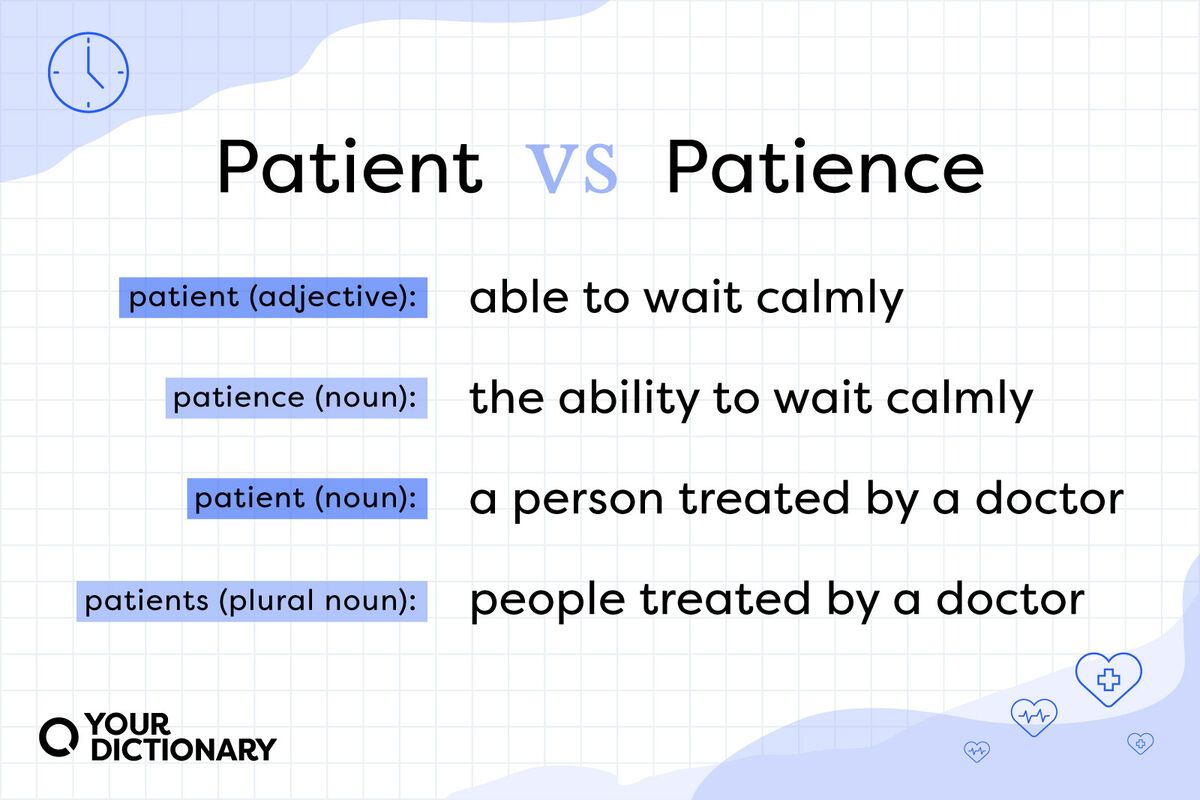Does a patient person know for certain that he/she is patient? If yes, how does one measure patience?
The question of whether a patient person truly knows their own patience is a fascinating one, with no clear-cut answer. Here's why:
Self-awareness and patience:
- Self-awareness can be tricky, and our perception of ourselves isn't always accurate. This can be even more true for complex traits like patience. We might underestimate our impatience when things are going smoothly, or overestimate it when faced with significant challenges.
- Additionally, patience can manifest in different ways across various situations. Someone might be incredibly patient with delays at the doctor's office but easily frustrated by slow internet. This makes it difficult to have a singular measure of overall patience.
Measuring patience:
- Researchers have devised various methods to try and measure patience, though none are perfect. Some methods involve behavioral tasks, like delaying gratification experiments, where participants choose between smaller immediate rewards and larger delayed rewards.
- Other methods rely on self-reported questionnaires or observations of individuals' behavior in different situations. Each method has its limitations and biases, making it difficult to definitively assess whether someone is "truly" patient.
Subjectivity and context:
- Ultimately, patience is a subjective experience influenced by individual differences, cultural expectations, and the specific context. What one person considers patient behavior might be seen as impatient by another.
- Moreover, patience can be learned and cultivated over time. Someone who struggles with patience in one situation might develop strategies to handle similar situations more calmly in the future.
Therefore, instead of seeking a definitive answer to "does a patient person know they are patient?", it's more nuanced to consider it as a spectrum of behavior that can be influenced by various factors. Self-awareness is crucial, but so is acknowledging the subjectivity and context-dependence of patience.
Here are some additional points to consider:
- Focus on self-improvement: Regardless of your current level of patience, striving to manage frustration and cultivate calm responses is always beneficial.
- Practice mindfulness: Mindfulness can help you become more aware of your thoughts and emotions, allowing you to respond more patiently to challenging situations.
- Seek help if needed: If you struggle with significant impatience that negatively impacts your life, seeking professional guidance from a therapist or counselor can be helpful.
Remember, patience is a journey, not a destination. The important thing is to be aware of your tendencies, strive to manage your reactions, and seek help if needed.

Comments
Post a Comment
Thanks